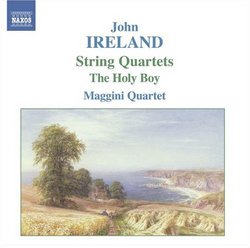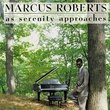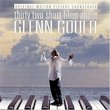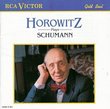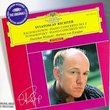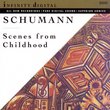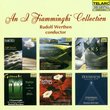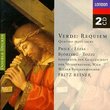| All Artists: John [British Composer] Ireland Title: Ireland: String Quartets; The Holy Boy Members Wishing: 0 Total Copies: 0 Label: Naxos Release Date: 6/20/2006 Genre: Classical Styles: Chamber Music, Historical Periods, Classical (c.1770-1830) Number of Discs: 1 SwapaCD Credits: 1 UPC: 747313277728 |
Search - John [British Composer] Ireland :: Ireland: String Quartets; The Holy Boy
CD DetailsSimilarly Requested CDs
|
CD ReviewsThe String Quartets Brahms Didn't Write J Scott Morrison | Middlebury VT, USA | 06/23/2006 (5 out of 5 stars) "I can still recall being gobsmacked the first time I heard any of John Ireland's music. That was an LP of his 1930 Piano Concerto recorded by Colin Horsley with the Royal Philharmonic under Sir Basil Cameron. It immediately became a piece I played over and over. Through the years I had heard other things from Ireland's relatively small output, but I had never heard the present works. The two string quartets recorded here are from the very young John Ireland (1879-1962) who wrote the First when he was eighteen, the Second at nineteen. He was very much in thrall to Brahms at that time and presented the First to the man he wanted to study composition under, Charles Villiers Stanford at the Royal College of Music. Stanford rejected the work -- 'dull as dishwater' -- and the student, later relenting at the instigation of the RCM's Director, Hubert Parry. I can't for the life of me find why Stanford would have criticized this First Quartet. It brims with life and has craft to spare. It doesn't sound at all like the later Ireland who a few years later became much influenced by the French impressionists and has indeed been described as an 'English impressionist.' No, these works are Brahmsian in tone and construction. The only thing missing is Hungarian gypsy music; in its place one hears typical English 6/8 lyricism but it is not by any stretch of the imagination 'English pastoral' music. As I listened to these works I was astounded to think they were the work of a teenager. As far as I can tell there isn't a misstep anywhere in all eight of the quartets' movements.
Quartet No. 1 begins with a broadly extroverted first movement, a sonata allegro whose themes are memorable and expertly manipulated. Most memorable is a passage in the development section given over to the viola singing the first theme over a gently rocking 3/4 accompaniment. II is a restless scherzo that scurries along and becomes more and more dramatic and even portentous. III, andante moderato, is a hymnic treatment of a noble melody that would have done Schubert proud. IV, the most obviously Brahmsian of the four movements, is another sonata-allegro making extensive use of fugato elements in its development before coming to a smashing conclusion in a joyous coda. This quartet is, as I've said, an amazing product to come out of an essentially autodidactic eighteen-year-old's brain. Track 5, placed in between the two quartets, is Ireland's quartet arrangement of one of his most familiar pieces, 'The Holy Boy,' a simply lovely lyrical effusion originally one of his 'Four Preludes' for piano, and subsequently arranged for all manner of instruments and voices. Quartet No. 2, written six months after he concluded No. 1, is also in four movements. The booklet note writer, Andrew Burn, comments that it is noticeable how much more assured Ireland's writing has become in the interval. Frankly, I can't see that it is all that much more assured, the reason being that I'm still astounded at the assurance evidenced in the First Quartet. Be that as it may, the Second is if anything more Brahmsian than the First. One hears hemiolas, ignored bar lines, tenor register thirds and sixths, descending sequences -- all typical of Brahms's style. More important, though, is that the music is convincing on its own terms. II, called 'Nocturne', begins with the first violin singing a poignant melody over muted strings. Later it, too, is muted in a misterioso agitated section before the movement returns to its serene first section, this time somewhat concentrated. Lovely. The Scherzo, placed third this time, is Beethovenian in its onrush and its bumptious rhythms, all mitigated by a songful trio. The Finale is a complex ten-minute movement that is essentially a Brahmsian (again!) theme-and-variations with contrasting moods -- each instrument gets its moment in the spotlight -- leading to a victorious vivace ending. The Maggini Quartet, justly lauded for its recent series of recordings of the knotty quartets written for it by the current Master of the Queen's Music, Sir Peter Maxwell Davies, shows itself here to the master of late romantic quartets written one hundred years earlier. They are given life-like sound and excellent engineering and production values. TT=57:30 Scott Morrison" |

